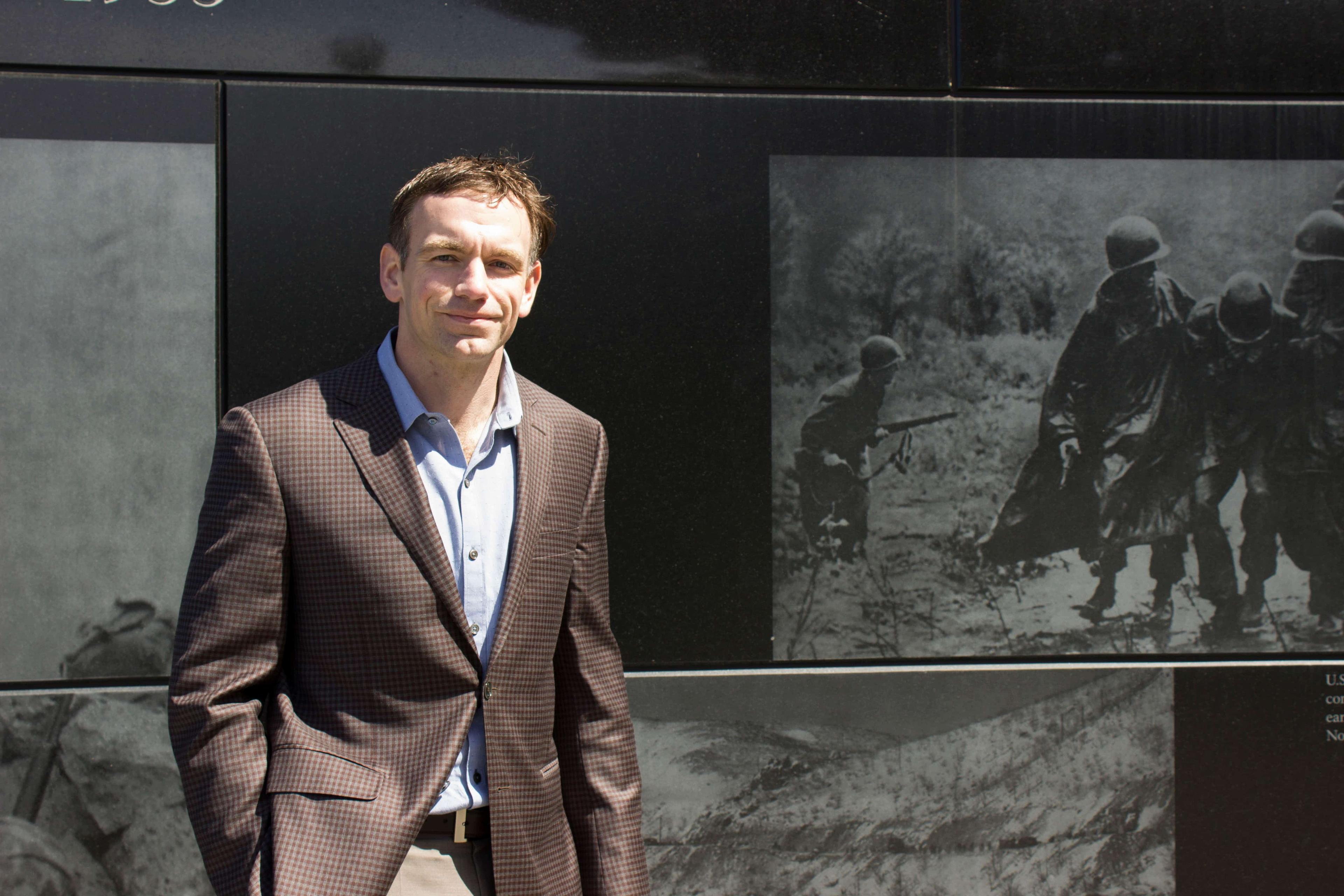May 11, 2017
PlaceMakers: Veteran Joshua Mantz Discusses Community, Service, and Memorial Day
Meet a veteran who is helping others overcome trauma.Joshua Mantz, a 2005 graduate of West Point, was an Infantry Officer in the Army for a decade. He led a highly successful counterinsurgency campaign in Baghdad until 2007, when he was severely wounded in a sniper attack. Joshua is the recipient of the Bronze Star of Valor and the Purple Heart.
Over the years Joshua has shared his personal story to help people deal with emotional trauma in their own lives. He’s been profiled in The New York Times, on CNN and FOX News, and gave a TED Talk at TEDxSantoDomingo 2015. His upcoming book, The Beauty of a Darker Soul: Overcoming Trauma through the Power of Human Connection, will be released in summer 2017.
A native of Pennsylvania, Joshua now makes his home in San Jose. He shared the story of his near-death experience in Iraq and discussed community and service at the May 29, 2017 Memorial Day Commemoration at the San Francisco National Cemetery in the Presidio.
What’s your connection to the Presidio?
I’ve been involved in veterans’ organizations and projects since leaving the Army. I met Gerard Choucroun, the Presidio Trust’s Director of Veterans Programs, at a national veterans meeting in San Francisco three or four years ago. In 2015, I was part of the University of Southern California Center for Innovation and Research veterans study conducted in Los Angeles. While there, I was able to connect with David Smith, Managing Director of the Presidio Institute. Over the years, I’ve worked with both of these men, and I’ve learned through this experience that a lot of roads in the veterans’ world go through the Presidio.
Since leaving the Army, you’ve done speaking engagements about your path toward recovery from emotional trauma, transitioning out of military life, and your experiences in Iraq. What is it about your story that resonates with people?
Even though I’ve had a near-death experience and I’ve spent time in Iraq, a place many people have never been, I find my experiences are relatable, particularly my experiences with trauma. Emotional trauma fundamentally alters the way you think the world should work, which means trauma doesn’t discriminate – it impacts people from all walks of life. As a result, I’ve found many people, like me, struggle to understand the effects traumatic experiences can have on their lives. Although the nature of our traumatic experiences may vary greatly, we can all find common ground when we view trauma through the lens of deeper moral wounds, such as shame, powerlessness, betrayal, and guilt. These are universal emotions that everyone can relate to.
My overarching intent – either through the work I do with veterans organizations, my speaking engagements, or through my book – is to tell my story in order to connect with people and help those who’ve experienced trauma recognize and validate the true source of their pain. I’ve found this recognition to be a vital step of the healing process, and something often misunderstood and overlooked by people who’ve experienced trauma.
You told your story at the 2017 Memorial Day Commemoration in the Presidio. What was different about this year’s ceremony?
Our theme this year is humanizing the military experience, and letting other people understand and absorb this experience so we can bring civilians and veterans together. I’ve found many veterans are viewed by society in one of two extremes: either broken charity cases, or heroes. The truth, however, lies somewhere in between.
Our veterans actually share many of the same values and traits as non-military San Franciscans. Whether you’re a veteran or a civilian, we’re all struggling with similar issues, even when the specifics seem very different.
How can people support and honor our veterans?
Monuments and memorials have always served as reminders of those who came before us, but the most powerful way to honor veterans is to honor their spirit through your everyday actions. We need to work together to make this world a better place, and I appreciate and respect those who make a positive impact in the lives of others.
There are so many ways to serve our communities beyond military service, and our cities and states and country need all of us to serve – be it through Habitat for Humanity, delivering food to hungry people, or tutoring kids who might not have educational advantages. Serving is good for the collective, and it’s also good for the individual. There’s really no greater way to honor our veterans than by serving others.
